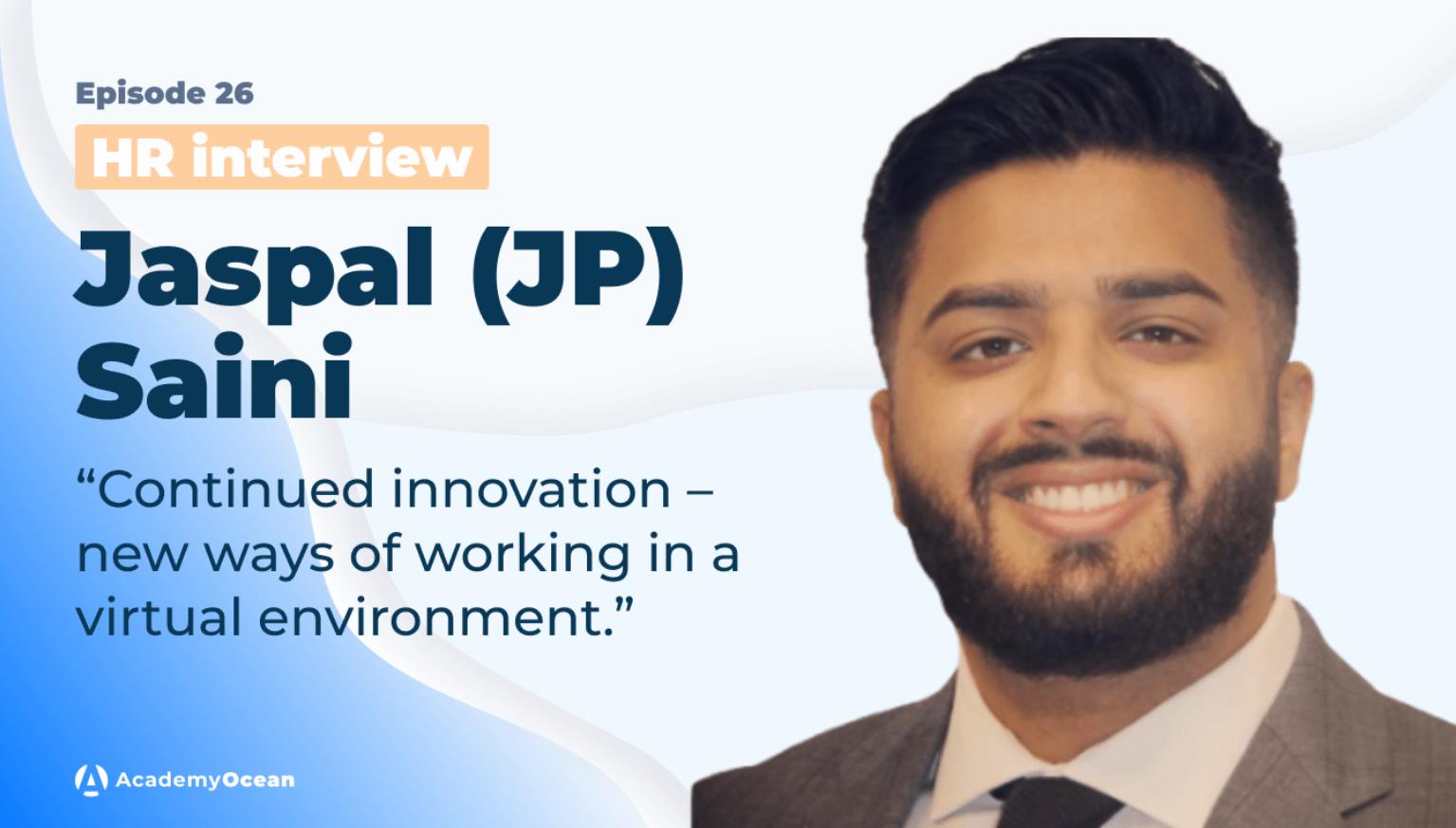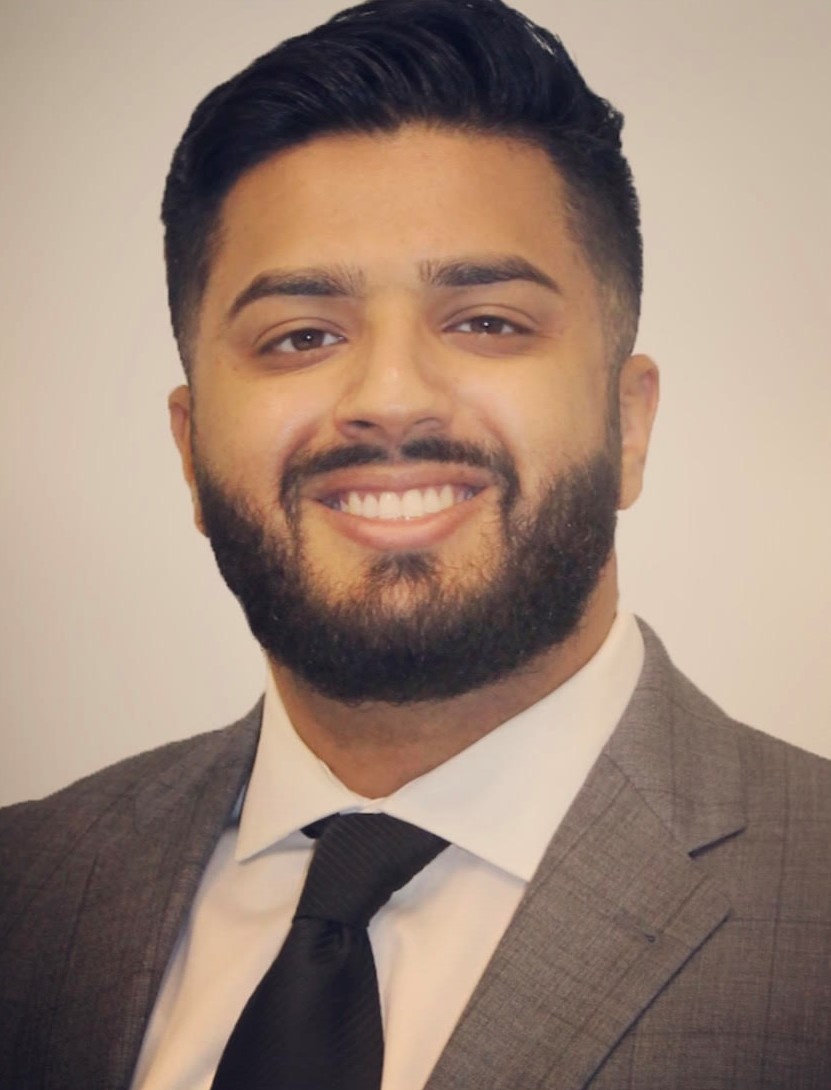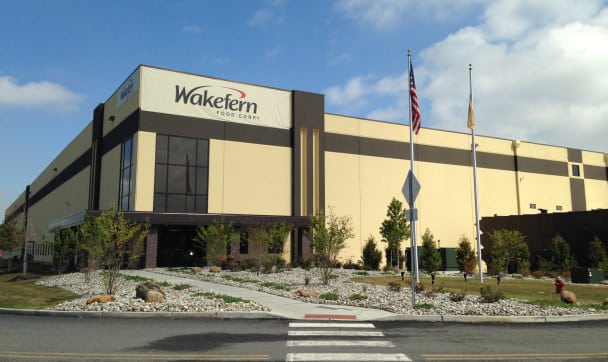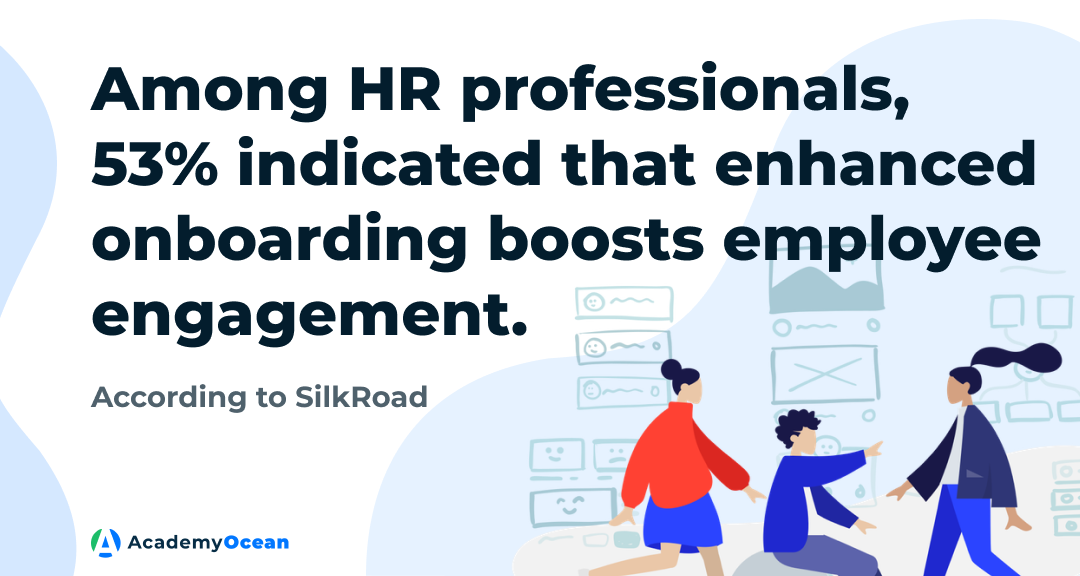Interview #26 Jaspal (JP) Saini: "Continued innovation – new ways of working in a virtual environment"

📌 Read the interview with Jaspal Saini to find out why a person who wanted to become a lawyer switched to an HR career and how does Tom Hanks relate to the company Jaspal works for.
Hello everyone!
We have published quite a lot of interviews with HR experts and with each new one, we are convinced of how much valuable experience HR people share.
Today, our guest is an SHRM-CP certified strategic HR Business Partner, JP Saini.

He has experience in industries such as Wholesale, eCommerce, Retail and Staffing. JP has worked on a variety of different projects in his career ranging from supporting business acquisitions, company transformation while continuously focusing on strategic initiatives.
Currently, JP is an HR Business Partner at the largest private employer in NJ – Wakefern Corporation. He has his Bachelor's Degree in Pre-Law studies and plans to return for his Master's in Human Capital/Analytics this year.
The Wakefern Food Corporation, founded in 1946 and based in New Jersey, is the 73rd largest private non-governmental company in the world, the largest retailers' cooperative group of supermarkets, and the fourth-largest cooperative of any kind in the United States, and the largest private employer in New Jersey in 2017.

AO: Jaspal, nice to meet you and welcome to AcademyOcean "studio". Did you work somewhere before becoming an HR professional, why did you decide to become an HR?
JP: I’ve had an unusual introduction to the Human Resources field. In college, my aspirations were to become a Lawyer. Towards the end of my college career, I realized that I was not quite passionate about going into Law. Upon graduation, I was hired as an HR Generalist in a mid-sized company working directly with the HR Manager and thus began my ascend in the Human Resources field.
AO: A very unusual career switch. Can you share your thoughts on why HR is an important function in any organization?
JP: HR is transforming. More organizations are looking at HR to provide a business impact to their company. The use of data/technology is something the HR industry is adapting too and HR professionals are asked to show quantifiable metrics to use for their organizations. Meanwhile, HR professionals are still expected to keep the “Human Touch” to their positions.
An effective organization should expect its HR professionals to be well-trained in these two areas; both quantitatively and qualitatively. In my opinion, that is an organization that is getting the most ROI from a strong, balanced HR team.
AO: Talking about HR evolution, where do you see the HR industry in the next 5 years?
JP: I see the HR industry continuing the evolution into metrics/data combined with providing a qualitative approach to the associates each HR professional supports. The HR industry is evolving right before our eyes. The demands put on HR professionals are not the same as they were just a few short years ago.
In my organization, we are tasked with providing more data-driven results in the projects we are working on that might not have had that component to them before. I see this normalizing in the industry.
A strong HR professional should find the balance of qualitative and quantitative.
I don’t believe the sole reason one should get into HR is to “help people” in a corporate environment. That can surely a reason to get into the field but becoming a strategic partner to the organization has to be right up there, if not the majority of the reason why.
AO: It is so interesting to get completely different ideas about the future of the HR sphere from HR specialists. In 5 years, let's see who was closest to the truth:)
What difficulties do you usually face working as an HR specialist?
JP: Finding ways to make a consistent impact with my position. I want to ensure I’m listening to the divisions I support and providing a tactical, strategic HR approach that is relative to that division/leader specifically. This comes with being able to listen openly which is a skill I work on daily.
AO: Jaspal, can you name three areas that you feel need the most improvement, based on your understanding of common HR practices?
JP: Three areas I can see needing the most improvement would be Data/Reporting, identifying effective Diversity, Equity and Inclusion practices and efficiency in HR Project Management.
I believe these areas can continue to align HR to the business objectives and strategic goals of the respective organization. With Data/Reporting, understanding Human Capital/Analytics and tying that into the HR function can provide business data that we can use to make more informed decisions. This can cover many areas such as recruitment, retention, turnover, seasonal projections and history.

In my opinion, I believe Diversity, Equity and Inclusion are subjective to each organization. What does that organization want with their DEI initiative and how can they tie that into their culture? This is the field that we HR professionals have to truly be in sync with our organizational leaders and population on.
With Project Management, many HR professionals are leaning towards the Lean Six Sigma model/licensing to help aid their skill set. With HR professionals juggling so many projects, many of which are niche, developing a pattern for efficient HR deliverables is a key area of improvement going forward.
Which corporate LMS is better to choose?
AO: In addition to your answers, we want to tell statistics regarding the areas that you named:
- Only 2.6% of people on UK tech boards are ethnic minorities.
- In the USA, there are more CEOs called John or David than there are female CEOs.
- GDP in the USA would increase by $25 billion if just 1% more disabled people were hired.
We hope that everything will change soon.
Can you name one (or several) HR experts whose work do you highly appreciate or take as an example?
JP: The HR Leadership Team at my organization provides daily inspiration for me. I try to take aspects of their HR leadership and incorporate them into my own routine whenever I can. Working for Wakefern Corporation, we have a large population who have been with the company for 25 years or longer! Including in my own department. There are so much history and trial/error for me to go off of.
Simon Sinek – I’m not sure to call Simon an HR expert but his teachings/philosophy can be used by any HR professional. I’ve read his book “Start With Why” at the beginning of my HR career and it truly set a benchmark for me. His psychology of corporate America and the dichotomy in how he breaks down leadership along with being led is amazing. His teachings can provide a fundamental baseline for any HR professional to start sharpening their skills in the HR field just by doing some basic things. His podcasts, online videos, etc. are also great.
AO: Nice, we listened to some of Simon's podcasts. They are really great.
Jaspal, let's move to the new hires adaptation process. How does the onboarding of new employees go into your company?
JP: We have a great process for onboarding new associates. Even in this virtual environment, we are working in, we try to find ways to have associates get a gist of the culture while being out of office/away from their divisions. We try to be as informative as possible during orientation and recommend methods for Divisional Leaders to continue making their new associates feel comfortable.
The best onboarding plan for a B2B SaaS company.
AO: Well, according to SilkRoad, among HR professionals, 53% indicated that enhanced onboarding boosts employee engagement.
And does your company has any interesting traditions and what is your favorite one?
JP: Working for Wakefern Corporation, we have many locations. We operate out of multiple buildings in New Jersey and each building has its own culture. With that many associates in buildings, Holiday parties were always a blast. In 2020, we had to take it online and conduct them virtually which ended up being just as much fun. I appreciate that about Wakefern - we try to find ways to innovate our current processes.

AO: Nice, nowadays everything goes online and it is awesome that companies don't forget about parties in this aspect.
Jaspal, what is the most valuable professional development advice you have ever gotten?
JP: Continue to learn/practice new methods. No one has all of the answers so continue to experiment and find new ways of working.
AO: We have quite unusual question for you. If the company you work on now were a person, what kind of person would it be?
JP: Good question. I would say an extremely reliable, trustworthy person. A Tom Hanks type of character (in most of his movies). The company I work for has an awesome culture, an amazing team and a very friendly environment. 25% of our population has been with the organization for 25 years or more! That speaks volumes to the standard we hold. We are the largest private employer in NJ with about 80K associates so the ecosystem is one that holds. Consistency is in the blood of Wakefern and we feel that we can provide a career path for anyone.
AO: Wow, it seems to us your company is really doing great! Keep it up!
What types of tools do you think every HR should be using in 2021?
JP: A reliable HR system along with an ATS system. The HR systems nowadays can be used for extraordinary things from reporting, metrics, analytics and data storage to prevent paper in the office. We need to continue to build out these systems and find ways to make them effective.
The second would be a reliable ATS system. With so many options available, ATS systems can make the posting, recruitment and hiring process that much simpler, especially with a larger organization. Having a steady ATS system can help organize the HR/Talent Acquisition Teams within a company so an error is limited and hiring is done at an efficient rate.
AO: And what HR trends do you think will emerge in 2021?
JP: Continued innovation – new ways of working in a virtual environment. I believe the HR trend that is the one constant is innovation. HR is such an interesting field, there really is no “one way” to do it. It comes down to what is effective at each organization, each culture and the demands of that industry.
While it is transferable, it also requires one to be adaptable. Adapting to frequent changes, demands, people. If there is one thing I’ve learned in my short career, being in HR requires one to stay attentive and active when it comes to the day-to-day. You just never know what issue might pop up.

AO: Thanks Jaspal! Let's finish our interview with a relaxing question. What was the funniest/most unusual incident during your HR practice?
JP: In a previous position, an associate was terminated due to performance. At this time, I had just stepped into the Senior/Supervisor HR position when my Manager had left. I was being groomed to take over that position but needed some experience.
After terminating the associate, they followed up by calling me on my personal cell phone and giving me an earful. At this time, I was new to this level of termination as the associate was a Director. I completely froze in the situation as I had never dealt with this before. Once I got off the call, my Director had called me and assured me that they would work on this with me.
After a couple of weeks, the same associate had called me back to apologize and take back his words. He appreciated the fact that I let him vent and get it out of his system. That was a lesson learned but looking back at it, it shows me how far I’ve come in the field.
AO: Quite a cautionary tale! Thanks a lot, Jaspal for your inspiring answers. We wish you all the best and good luck in your career development!
That's all for today, friends. See you at the next interview!
In case you would like to ask your own questions, write them down in the comments. Also, if you want to read an interview with a particular person, let us know.
Learn more about LMS 2.0 Platform for employee training.
If you want to learn more about the HR field and find a lot of useful content, join the most secret HR group.
Take care 😇